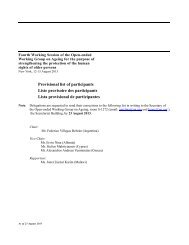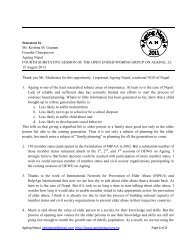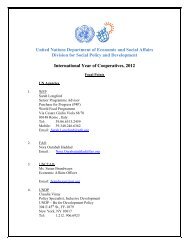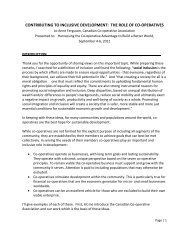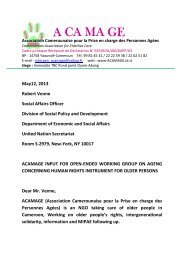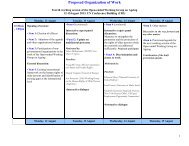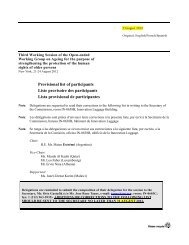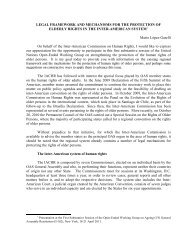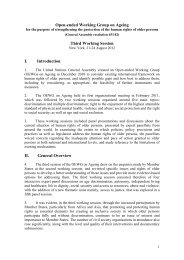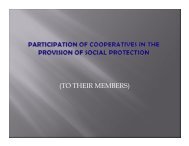Audit of Residential Facilities, Final report - Division for Social Policy ...
Audit of Residential Facilities, Final report - Division for Social Policy ...
Audit of Residential Facilities, Final report - Division for Social Policy ...
You also want an ePaper? Increase the reach of your titles
YUMPU automatically turns print PDFs into web optimized ePapers that Google loves.
egards to the Mangers carrying out their responsibilities; yet at the same time being accountableto the Board.Skills: In general terms the Board members <strong>of</strong> the white homes were more skilled and broughttheir years <strong>of</strong> opportunities and experience to be used to the advantage <strong>of</strong> the home. In many <strong>of</strong>these homes board members served on specific committees that utilised their experience in anappropriate way. This was less obvious in black homes where Board members might not havehad the appropriate level <strong>of</strong> skills or experience to oversee the work <strong>of</strong> the Manager and providethe strategic leadership and governance to the home. The other reality is that more white peopleare able to <strong>of</strong>fer their services voluntarily as they are less in need <strong>of</strong> being „compensated‟ <strong>for</strong> thecontributions that they make. Many skilled Black people on the other hand, are still building theircareers and either not that available or either serving on too many Boards because <strong>of</strong> thedemand <strong>for</strong> their skills and those that are available might not have had the necessary exposureand experience in serving on Boards.Term <strong>of</strong> Office: In terms <strong>of</strong> good governance there is a very undesirable practice in many homeswhere Board members remain on <strong>for</strong> an „unspecified period‟, which <strong>of</strong>ten translates into over 10to 15 years, and even more in some cases. There are common problems <strong>of</strong> founding membersyndrome where those who initiated the home remain on the board <strong>for</strong>ever, <strong>of</strong> territoriality and <strong>of</strong>not allowing new blood and fresh ideas onto the Board.4.3 Management Capacity in HomesComposition: As with the composition <strong>of</strong> the Board most management and senior levels <strong>of</strong> staffwere white, while in homes in black areas, it was predominantly the same race group <strong>of</strong> the areain which it is located.Skills: The competence <strong>of</strong> the Manager is crucial in the homes as this is in turn impacts oncritical aspects <strong>of</strong> service delivery. The management capacity in many homes was lacking ashomes did not always appoint the right person to do this job. One <strong>of</strong>ten assumes that someonewho is good at their job (being a nurse, matron, social worker) will in turn make a good manager.However, none <strong>of</strong> these disciplines prepares people to manage effectively, although one couldargue that social work training does provide a sound basis <strong>for</strong> dealing with people.60 | D S D A u d i t o f R e s i d e n t i a l F a c i l i t i e s



